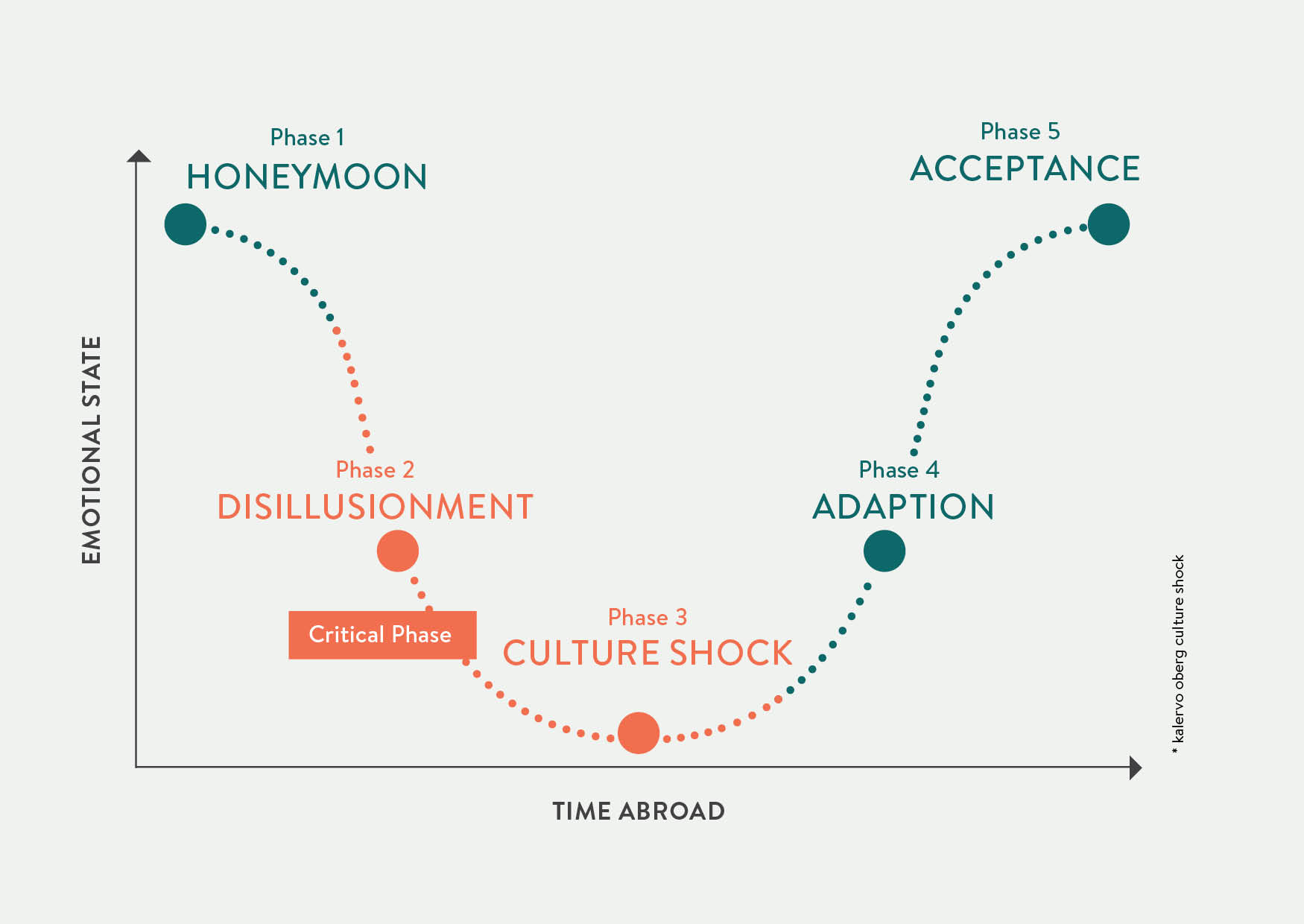
Assignment
The main reason for the failure of an assignment is the lack of integration of the expat, their partner or the accompanying family in the host country.
The challenge
Legal requirements, lack of time, deadline, and performance pressure and tight budgets set the framework for a secondment. Many people and departments with different tasks and objectives are involved. Host countries are usually thousands of kilometres away, there are major cultural differences and the environment is often unstable. A huge task.


What does a failed assignment mean today?
Far more than just a cancellation. After all, what use is an employee who fulfils the assignment but performs less well? According to studies, this is the case for up to 50% of employees on secondment. Or an employee who achieves the targets set but resigns within a year of the end of the assignment? According to studies, up to 45% of assignees.
We define a failure as an assignment where the expectations and objectives of both parties, the company and the expat, are not met.
What are the costs of failure?
The costs can be divided into three areas:
The direct costs of the assignment such as salary, training and education costs, relocation and accommodation costs, travelling costs, etc. They range between two hundred and fifty thousand and one million euros per year. Depending on the effort and salary of the expatriate.
The indirect costs can be far higher. Loss of market share, lost business opportunities, loss of trust among customers, local employees and government officials, and even a ban on doing business in the host country.
The third area concerns the loss of a valuable employee. The probability is very high that the failed employee will leave the company and take expertise, insider knowledge and contacts with them.
Direct cost up to US
$1,250,000 ... indirect costs
can be even more dramatic … expatriates may suffer loss of self-esteem and confidence …unmotivated to undertake future challenging tasks
When does failure begin?
Based on Kalervo Oberg's concept, the employees go through different phases.
1
The first phase is characterised by a feeling of enthusiasm, euphoria and excitement for the new. It almost feels like a holiday. Everything is nice, everything is going well.
2
Disillusionment sets in during the second phase. Satisfaction decreases, differences are perceived more disturbingly and the mood deteriorates. Difficulties and problems begin in this phase.
3
In the third phase, mood and satisfaction reach their lowest point. Stress is high and labour productivity is low. Expats describe the experience of these downward phases as a feeling of alienation, disorientation, insecurity, discomfort, lack of understanding and a feeling of loneliness and isolation.
The success or failure of a secondment is decided in the second and third phases.
4
In the fourth phase, provided that there have been no negative events such as termination, departure of the accompanying family, distancing of the expat from the assignment and the company or marital and partnership crises, things slowly start to pick up again. Satisfaction, acceptance and mood increase.
5
In the fifth phase, the "feeling of being at home" develops. Orientation and understanding are there, the mood is relaxed, work productivity and satisfaction are at their highest in this phase.


What is the problem?
Until today, almost all measures, such as training and workshops, support with visas, taxes, relocation, housing, and potentially school search, focus on the preparation and the beginning of a secondment. This means they end before the actual problems arise.
What is the solution?
To create a situation in which expatriates feel oriented, acknowledged, valued, and safe right from the beginning. And that's exactly where we come in.


